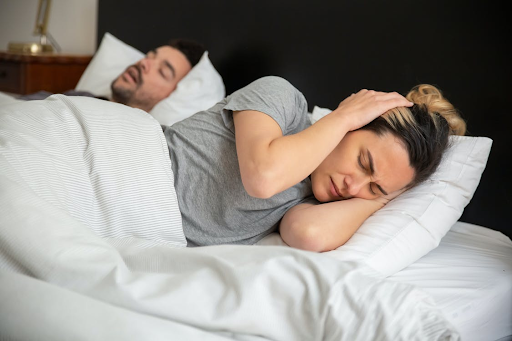A sleep test, also known as a sleep study, is a set of medical diagnostic tests designed to identify sleep disorders. A sleep test measures a patient’s heart rate, brain waves, oxygen levels, breathing, and more, while they sleep.
Sleep tests are most often conducted in sleep labs, but there are also home versions. They can help a doctor find out why you struggle to sleep, the underlying causes of insomnia, or if you have sleep apnea. This kind of testing has pros and cons, but if poor sleep affects other areas of your life, it’s probably worth doing.
Pro: The Most Accurate Test Available
There are other ways to tackle sleep issues and insomnia, but lab-based sleep tests are currently the most accurate for diagnosing sleep disorders. Also known as polysomnography, it is the best way to find out if you have sleep apnea.
Sleep apnea is fairly common and can also be serious. It occurs when you stop and restart breathing while asleep and is often accompanied by snoring.
Complications of untreated sleep apnea include fatigue, high blood pressure, cardiovascular disease, type 2 diabetes, liver disease, mental health issues, and relationship problems. Getting a definite diagnosis is essential for overall health.
An in-lab sleep test is the gold standard for making this diagnosis and for determining any other causes of sleep issues. The lab setting is so important because it is a controlled environment. It allows doctors to control for and eliminate any other factors that might contribute to poor sleep, like environmental noise.
Pro: Flexible Options Are Available
A sleep test might seem like a time-consuming hassle, and it can be, but some options give patients some flexibility. There are also different types of tests, so the schedule will depend on what your doctor recommends. You could be a candidate for a split-night study if you need multiple tests.
This includes a standard polysomnogram, titration study, and sleep apnea machine in one night. This condenses two nights of study into one. Another option that is available for some patients is a home sleep study, typically used to test for sleep apnea. It can confirm sleep apnea but not rule it out and does not test for other sleep disorders.
Con: Sleep Tests Can Be Costly
A full, in-lab sleep study can be expensive, even if you have insurance. Without insurance, the cost might range into the range of a few thousand dollars. If you have insurance, your pay depends on your plan. Some insurance plans require you to undergo a home sleep test first. Then, if your doctor determines you need a lab sleep study, it will cover that cost.
Con: It Might Be Hard to Sleep Under Testing Conditions
The idea of sleeping in a lab can be intimidating, but the setting is a lot like a hotel room. The bigger hurdle for many people is being hooked up to a lot of equipment. This includes sensors on the head, chest, legs, and temples, which are attached to wires and a computer.
You might also have a clip on your ear or on your finger to measure blood oxygen levels. The room will have audio and video recording with low light. A technician sits in another room during the test, so you feel alone. Nevertheless, sleeping in these circumstances can be difficult for many people.
If the cons outweigh the pros at the moment, consider other options, like improving your sleep environment. Something as simple as a new mattress can make a world of difference. Only some realize just how important a mattress is to sleep and how often it should be replaced.
If you wake up feeling unrested and with cramps and pains, it’s probably time for a new mattress. A recommended replacement is the Nolah signature 12-inch mattress, an affordable solution offering innovative materials that conform to the body and relieve pressure points.
Other things you can do to improve your sleep environment include:
- Getting a new, more supportive pillow.
- Lowering the temperature.
- Blocking out all light.
- Using white noise or other soundscapes to drown out disruptive noises.
Talk to Your Doctor About a Sleep Study
Your doctor is the best person to advise you on undergoing a sleep test. They can refer you to a sleep specialist who can give you all your options. They can help you decide whether you need a sleep study or just a revamping of your sleep hygiene and habits. (easyvet.com)
Hi, I am an Author who believes in making the life of their readers interesting with his writing. Writing was always my first interest. Ever since I was a teenager, I was already into writing poems and stories. Today, I have gained a great experience in my work. Check out my work and share your views.

